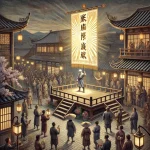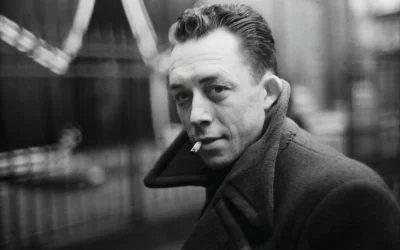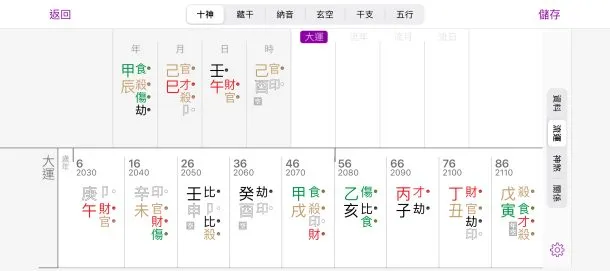Hi everyone! I’m back and sooner than expected! There’ll be a really interesting case study in this post, so if you’re a sucker for case studies, do stay till the end.
I think the previous post on the reminder of harsh truths has got quite a few people riled up because I brought up the notion that not everyone has strengths. It’s more apt to call them “preferences” because whether you can claim something is your strength really depends on other factors and it cannot be assessed arbitrarily as though we’re doing away with Yin and Yang and the duality that exists in reality. It’s only a strength if only you alone can do it, if not, you at least need to be the best at it.
Most people would ask what their strengths are during a BaZi consultation and I have to be honest and say here that, sometimes, that’s really not the most important question to ask or even a relevant question to ask. The mistake most people make is to approach Chinese metaphysics in a very one-dimensional way as though it is just another personality test like your MBTI or Gallup strengths finder.
I hope this blog post explains why it’s not just about your strengths, and why Chinese astrology and metaphysics are still relevant and can do an even better job than your MBTIs and most personality tests and strength finders out there.
Assessing Strengths Is Not So Straightforward
I’ve said this time and again, but one should always remember that Chinese metaphysics cannot be approached with linear thinking and analysis cannot be carried out as though it’s a straight line. Nothing in Chinese metaphysics is ever a straight line. The fact that the same chart can manifest in different forms in different within and outside of the same era shows this. I’ve always brought up the fable of how emperor Zhu Yuan Zhang hunted down the person with the same BaZi chart as he did and wanted to execute him so that no one challenges his throne, only to realize he was a bee farmer with his own ‘kingdom’.
One idiom we always use in Chinese metaphysics is 「在天成象, 在地成形, 在人成事」so the ‘essence’ of something is already determined by the Heavens. In the above example, the 象, or ‘essence’, is that both Zhu Yuan Zhang and the bee farmer are meant to be rulers and kings of something. The 在地成形 and 在人成事 determine the physical form and human element of something. To put it in a more relatable way: You can either be the King Of Chicken Rice and live like royalty, or you can be the Plebeian of Banking & Finance where you work in a prestigious institution and industry, but still live like a pauper.
The above depiction of how the laws of Chinese metaphysics can manifest is the reason why, personally, I do not care what kind of profession my clients are in nor do I treat them differently because they are deemed to be in more prestigious professions. Chinese metaphysics really does not care about such things.
Most people approach a consultation thinking that a practitioner can just choose an industry or role for them and things will just turn out alright. It’s oversimplifying things.
The 10 Heavenly Stems & Their Associated Strengths
It is not entirely wrong to assess someone using their Heavenly Stems (their Daymasters basically) they are associated with, but again, it is oversimplifying things.
The 10 Heavenly Stems each have their own unique characteristics and there are records of these in the Chinese classics and Confucian texts. Confucian texts actually incorporated the theory of the 5 Elements and you may have heard of 三纲五常 where the 五常 here refers to the “Five Virtues” each represented by a certain element:
- Wood represents benevolence (仁): Your moral compass and standards.
- Fire represents propriety (礼): Knowing what’s the right thing to do at the right time. Confirming to accepted standards of behaviour or morals.
- Earth represents fidelity (信): Your loyalty, and trustworthiness.
- Metal represents righteousness (义): Sense of justice and morals.
- Water represents wisdom (智): Good judgement and can refer to intelligence as well.
Each element and its Yin & Yang polarities, as we all know, have their own associated qualities and strengths and a lot of the English books on Chinese metaphysics will touch on this. It’s easy to understand and it is the main draw of BaZi for many newcomers. You will usually see a laundry list of strengths and weaknesses for each of the Heavenly Stems. For example, Yang Wood (甲木) are known to be benevolent, have high ideals, and are principled. This gives some of them the desire to lead. On the flip side, they can also be known to be stubborn, inflexible, sometimes even pompous.
There’s is a reason behind why each of the 10 Heavenly Stems is given its own specific meanings and representations and these are written in the Chinese classical texts. Using the above example, Yang Wood’s stubbornness comes from Yang Wood’s representation of a big tree and refuses to bend, whereas Yin Wood can bend in whatever way it wants, so much so that Yin Wood can escape Yang Metal’s harm. It’s the reason why Yin Wood people are known to be flexible and adaptable. Another interesting example I like to use is Yin Fire: Most people would think it just represents a small flame, but it can actually represent the stars as well but this depends on which Branch it is sitting on.
I won’t go through every one of them as such information is readily available elsewhere and it’s not a fruitful exercise to list them here. Basically, we are living metaphors of what these Heavenly Stems represent. Each Stem and Branch represent different things and the meaning of the Stems can also change depending on which Branch they sit on.
The Mistakes Hobbyists Make When Using Chinese Metaphysics To Assess Strengths
One mistake that hobbyists always make is to assume that they embody the strengths of a particular Heavenly Stem or Star just because they were born under it, completely ignoring the concept of balance and that an element does not exist arbitrarily or in a void.
Your Daymaster or whatever Stem we are talking about is always interacting with something else and its meaning will change depending on what the interaction is like. There are many crude examples from real life I can use: If someone punches an old man, that person will likely end up being a criminal and will likely go to jail. But if someone punches a paedophile, although it’s arguably wrong in the eyes of the law, that person will probably end up a hero. It is the same action, but the meaning changes.
The above is the reason why not all Yang Wood people are benevolent; not all Yin Wood people are adaptable; and not Yang Fire people are generous. You cannot just look at the Daymaster or Heavenly Stem itself, but rather, you need to look at the state it is and how it is interacting with other parts of the chart.
Let’s give an abstract, philosophical example: Yang Wood on its own can symbolize a big tree, being number one, and being upright. But this is just one side of it and we have not taken into account the Yin and Yang of things because no element can exist on its own. In fact, the elements are just a way of expressing how Yin and Yang interact and grow. Pair it with something else, and Wood takes on a whole new meaning. Pair it with Metal, and Wood’s benevolence will also come with justice and it’s no longer benevolence for the sake of it. Pair it with Fire, and Wood is then allowed to express its ideals and can be considered a life-giver as it provides warmth. The list goes on.
In other words, the form and meaning Wood, and any element, in fact, can take also depends on what it’s interacting with and this is the reason why when we analyze someone’s character, it’s much more than just looking at the Daymaster itself and we also have to look at the structure and dominant element of the chart.
The same applies when we use Zi Wei Dou Shu to assess someone’s character. A person with a star in its Vibrant (庙旺) position is going to turn out very different from someone with a similar star in a Debilitated (陷) position. Yin and Yang and the 5 Elements are still at play here because each star and Palace in the chart has a certain element tagged to it, so the strength of the stars depends on whether the interaction between the stars and Palaces.
Zi Wei Dou Shu’s Stars And Its Impact On A Chart
Zi Wei Dou Shu is arguably a lot more popular than BaZi because it’s easier to form a preliminary assessment of someone just by looking at whether the stars in one’s Life Sector and whether it is in a good position. For lack of a better way to put this, whether the star we are born under is in a strong or weak position is a reflection of its energy levels and its effects on us.
This is going to sound a bit new age but it actually isn’t. The Chinese sages believed that the star one is born under can represent their soul. Each of the main stars in Zi Wei Dou Shu represents an ideal, concept, virtue, and even vice, and what makes us different even though we have the same biological makeup is because our souls are different. These are the exact same star we use in Qi Men Dun Jia, and even the Heavenly Stems in BaZi also represent the ethereal form.
Concepts of souls aside, the Chinese sages believed that everything will manifest in a physical form on Earth, so perhaps one day we might find these differences in our genes. This topic is beyond what I can discuss as I’m not trained in biology so I’ll just leave it here.
One of the steps in determining the quality of a Zi Wei Dou Shu chart is to always look at whether you’re born under a star in a strong position. Over the course of the years speaking to so many clients, I realized what was written in the books is indeed true. People born under stars in strong positions usually achieve more because their souls, or character, are simply just stronger. Their inner makeup is entirely different from those born under the same stars but in weaker positions. Two people can be born under 太阳, but depending on whether these stars are in Vibrant or Debilitated positions, they will turn out very different. One will have more drive and carry more influence, whereas the other will be more withdrawn and pessimistic.
I’m speaking from my own experience, but people born under stars in weak positions tend to end up feeling like energy leechers because they need others to make up for what they don’t have, or they need to be validated that their version of reality is the right one. I’m sure most people can relate because we know someone whom we love spending time with and who energizes us, and we also used to know someone who just feeds off your energy.
That’s not to say that all charts with weaker stars are bad and incapable of success and significant achievements. It still depends on other factors like whether benefactor and destructive stars are added into the mix, and whether their Elemental Phases are on their just. It’s just that from my experience, those born under stars in stronger positions will always have that extra edge.
Let’s Assess This BaZi Chart’s ‘Strengths’
Let’s take a look at a really interesting case study using BaZi first:
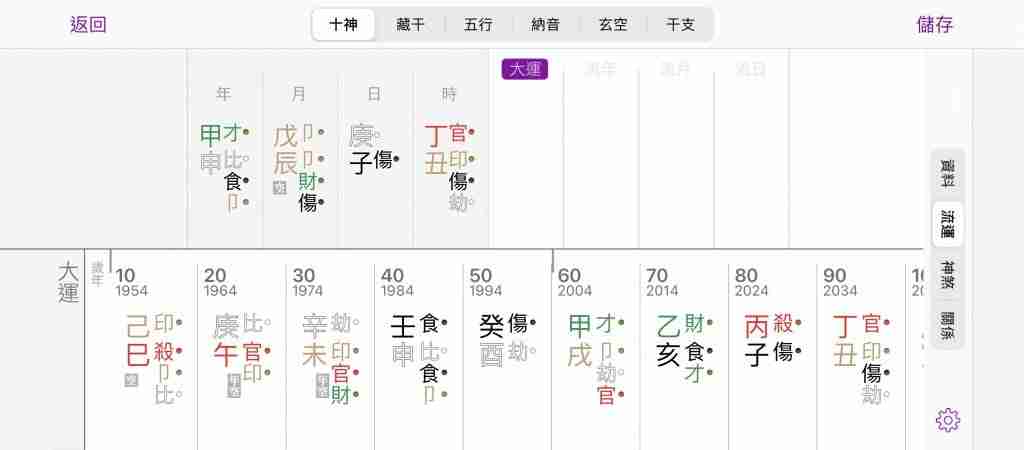
Let me not just break it down but also talk about some common mistakes that hobbyists will make:
- It is a Yang Metal Daymaster chart born during spring the month of 辰。Some people will categorize this Daymaster as a strong one because of strong presence of Earth and some Metal appearing. You’ll see 戊辰,丑,and 申 that all add to the strength of Yang Metal.
- If you pay close attention though, you’ll notice there is 子辰申三合水局,so the question to ask yourself is whether this is indeed a strong Yang Metal chart when you take this into account.
- Also, you’ll see Yang Wood (甲木) and Yin Fire (丁火) both appearing. If you had some intermediate knowledge on BaZi, you’ll know that these two elements are supposed to bring up the best in Yang Metal in a process we call 庚金劈甲引丁火。
At first blush, the above might appear to be like a very high-quality chart to most people because they would conclude that it’s a strong Yang Metal Daymaster with Yang Wood and Yin Fire appearing. But is it though? The above chart is interesting and annoying at the same time because everything seems ambiguous it is no longer just about the strength of the Daymaster.
I’ve said this before, but BaZi analysis is not just about strengthening a weak Daymaster or weakening a strong one. It’s just one of the logical steps. One needs to understand the nature of the Daymaster or Heavenly Stem you’re associated with, what it represents, and what are the conditions that bring out the best in it at a given point in time. Even if the Daymaster were to be a weak one, it doesn’t mean the element that strengthens it will be deemed the critical element (用神).
I’ve used the above chart as a test for a lot of friends and clients who wish to learn BaZi to show them it’s not as straightforward as it looks. Here are some things to guide you in understanding the chart above:
- If you assume the above is a strong Yang Metal chart, then does Water formed by 子辰申 serve as the critical element to weaken Yang Metal and keep the chart balanced?
- If you assume the above is a weak Yang Metal chart, then does the Yang Earth 戊土 act as the critical element to strengthen Yang Metal and keep the chart balanced?
- Also, what exactly does Yang Metal represent and what brings out the best in Yang Metal?
- As a Yang Metal chart-holder, does he embody Yang Metal’s virtues and positive traits? And if Yang Earth is his critical element, does it mean he embodies the positive traits of Indirect Resource?
Now, I know you’ve been waiting for the answer for who this chart belongs to. It actually belongs to a serial killer.
The inspiration for this post came as I was watching “The Serpent” on Netflix, depicting the story of Charles Sobhraj.
Here is his Zi Wei Dou Shu chart:
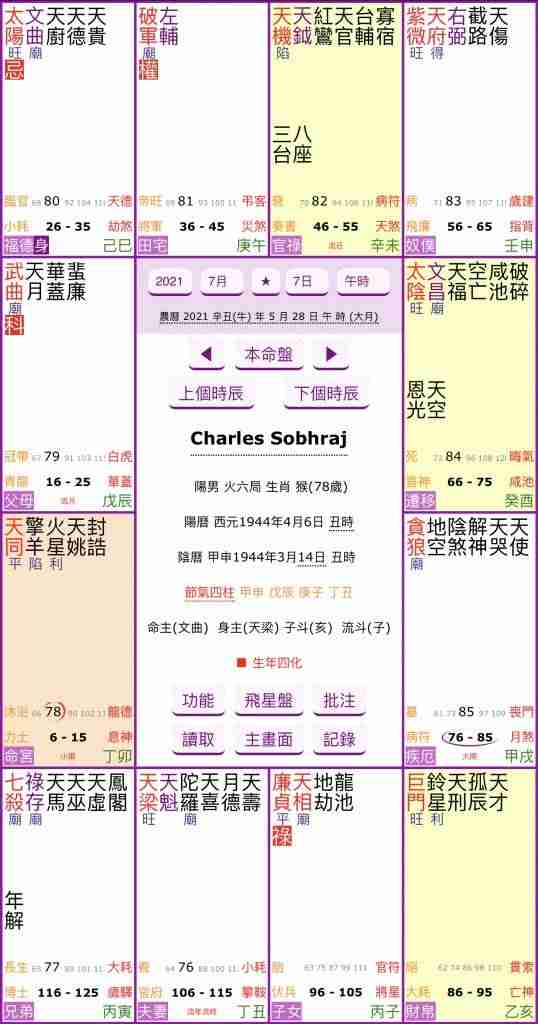
What is surprising to me is that he is born under 天同 which is a star you usually won’t associate with serial killers as this star has a reputation of being one of the gentler stars. 天同 is usually known to possess a child-like innocence and are considered laid-back people who do not like high-stress environments. It’s considered one of the more blessed stars as the Chinese sages believed that they’re usually protected from calamity and a star associated with good karma but only if it’s in its Vibrant position. The above chart sees 天同 being in a 平 position so it’s somewhere in the middle, so some positives of 天同 will still show, just that in this case, the protection from calamity comes in the form of escaping the death penalty.
His Zi Wei Dou Shu chart is a fine example of why we do not just look at the main stars and assess what someone is like. As a practitioner, for a serial killer to be under 天同 is very, very surprising, but it also explains why Charles Sohbraj is fabled to have an allure and charm which allows him to conduct his atrocities in the first place.
Now, I know everyone is asking me which part of his chart hints that he will be a serial killer because clearly, it’s not the result of him being under 天同。 You just look to look at his Life Palace (命宫) and 福德宫 (Karmic Sector) and what’s happening inside them, especially his Life Palace. You will see 擎羊 in its worst position and 火星 in there. The descriptions in the books are accurate to the word. I’ll put a snippet for those who don’t believe me:

Basically, when two or more negative stars end up in one’s Life Palace, there’s usually an issue and you can regard it as a ‘corrupt soul’. Of course, these are not the only signs we look out for when we assess a Zi Wei Dou Shu chart but what happens in one’s Life Palace is often telling enough. We’ve not even touched on the Flying Stars in Zi Wei Dou Shu yet, but I won’t go into that for now.
Coming back to BaZi: It should be obvious he possesses neither Yang Metal nor Yang Earth’s positive qualities. You might be asking which part of the charts hints that he has tendencies to be a serial killer. Is it the fact that he’s under Indirect Resource or the fact that he’s a Yang Metal that’s encountered too much Water? If you were to ask me, it’s actually neither of these factors but something else in the chart. Here’s the hint: Should this chart have been born at a different hour, the outcome would have been completely different.
The above example is perfect for showcasing why assessing one’s character using astrological charts is not that as straightforward as it seems because you can’t possibly categorize everyone in the world into just 10 groups based on their Daymasters or the main stars they’re born under in Zi Wei Dou Shu. I’ve written about this before: The Ten Gods in BaZi: How Not To Do A BaZi or Ten Gods Profile
The above case study of the serial killer definitely had some so-called ‘strengths’. His ability to charm and his intellect probably came from the presence of Water and Indirect Resource in his chart, but look what he did with it. Can these traits really be considered strengths in this context?
The point I am trying to make is somewhat similar to what I said in my post on harsh truths. If your so-called “strength” still sees you being ranked at the bottom in terms of quality, output, and execution, there is really no point. It still comes back to my favourite word “balance”, not just within ourselves but also with our environment.
One can speak very well, but if you’re not well-read or knowledgeable, you’re just making noise instead of enthralling others with charisma. You can be very good at strategy and planning, but if you use it for personal gain, you’re just a crook. The examples can go on and on.
What Is The Point Of Me Saying All This?
Many people assume that they are on their way to success just because their “strengths” are identified. I’m here to remind everyone that this can’t be further from the truth, and again, it is very linear thinking. The world is not so simple, because in our day and age, even being too nice can be deemed the wrong thing to do. At the end of the day, it still depends on the old Chinese saying 天时地利人和, meaning the timing, geographical, and social conditions must all be right.
When you get a chart reading, it’s really not just about taking a personality test. Firstly, modern-day personality tests can’t assess character, but thankfully, Chinese metaphysics and astrology can. You are also not assessing your strengths are though you are the only person on Earth or living in a void because a chart takes into account your environment and that particular snapshot in time in which you exist. To put it simply, it’s all relative. I said this in my previous post and I’ll say it again: Your strengths can still be an insult to many others who can do the same thing, and do it better than you.
It’s not that it’s an unconstructive exercise to ask what your strengths are during a consultation, but just know that success and a good life go a lot deeper than this and I think many people have yet to realize or fully accept this.
– Sean





